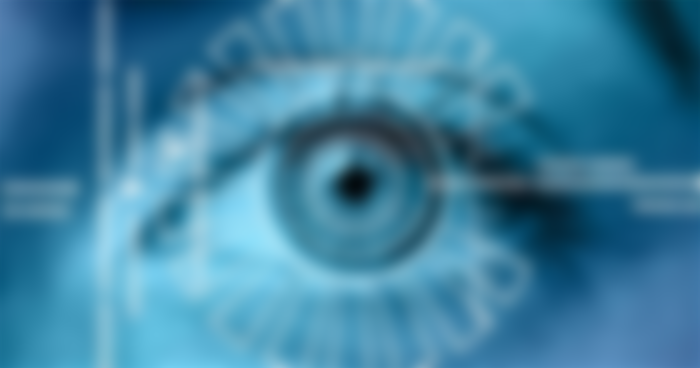In recent years, there has been a significant increase in studies on immigrants and refugees and in the field of humanitarian aid, in projects using the latest technologies such as blockchain and artificial intelligence. This is accompanied by biometric identity registration, mobile applications, and studies in which data collected from mobile phones and social media are analyzed. These activities are carried out by the United Nations and its affiliated organizations and humanitarian aid organizations, and are encouraged by donor states and other funding organizations.

Blockchain-based "building blocks" project, which enables shopping by scanning the eye / iris by the World Food Program in Jordan, the blockchain-based financial support program carried out by the International Red Cross Committee in Kenya, established under the leadership of Microsoft, which receives the health records of refugees in Thailand and Indonesia. The ID2020 Initiative is an example. Numerous studies such as the analysis of asylum claims applied by many countries such as the USA, Canada and Switzerland, and artificial intelligence programs consulted on refugee resettlement can be added.
It is clear that these technologies offer great opportunities, they can perform many services quickly and with less cost. For example, it is stated that the World Food Program's blockchain-based money transferred by iris scanning reduces bank account transfer costs by 90% and this income is used for those in need.

However, how these technologies are used in an environment where even societies living under normal conditions are manipulated through the tracking and analysis of our digital footprints that we leave behind on mobile phones and social media at every moment, how data from refugees and migrants are collected, where they are stored, the approval of those who are in vital need of assistance. Serious political, ethical and social questions such as how it is received, how data privacy is protected, and how people are prevented from using the data shared against them are not yet given satisfactory answers.
The realization of these projects requires the UN itself to cooperate with technology companies under the name of public-private cooperation. The latest has drawn criticisms of the cooperation agreement signed between the technology giant Palantir and the World Food Program, in which a wide variety of claims in terms of business connections were made. We depend on technology companies' explanations on various topics such as how cutting-edge technologies such as artificial intelligence or blockchain work, such as how the artificial intelligence algorithm makes a decision. More importantly, the lack of expert teams in the "donor countries" (DFID, USAid), humanitarian aid organizations and the United Nations that fund these projects causes the content of the existing cooperation and partnership to be questioned. It is a very serious problem that the activities of these companies in these projects, in which they are involved for profit, are not audited and there are no mechanisms to prevent them from being used for commercial purposes against the persons whose data is collected. Of course, issues such as analyzing the profit rates of companies acting for profit, drawing the boundaries of their fields of activity should also be taken into account.

However, where and how the biometric data (fingerprints, iris, etc.) collected for identification purposes are stored and the issue of sharing it with governments is also a serious problem. Both UN agencies such as UNHCR and a wide variety of humanitarian organizations collect biometric data from millions of people. The loss of the line between humanitarian aid and military security may result in exploitation and prosecution of vulnerable people who leave the areas where they live, for example, when these data are captured by the warring parties in a civil war and conflict conditions or seized by (authoritarian) states that do not sympathize with refugees.
Although it is necessary to obtain voluntary approval of people in such projects, it is not possible to argue that people who need the help in question, who do not know about the technology in question, or even illiterate, have given their consent to participate in the project by signing or fingering. It is also necessary to clarify which ethical principles to act on this issue by the UN, funders and fund evaluators.

Most importantly, these projects must be transparent and open. The results of the projects of the World Food Program or ID2020 that we mentioned should be clear, measurable and open to independent audit. It is known that technologies such as blockchain implemented in many pilot projects are not needed. For example, in the cases of Kenya, Jordan or Thailand, the private keys of everyone (tens of institutions and thousands of people) in the blockchain, from beneficiaries to technical service providers, from digital infrastructure providers to organizations that implement the project and funding institutions, are collected in a single company and the blockchain system is established as a closed structure. There are practical consequences such as, and the reason for persistence on the blockchain is not explained while there are other technologies available. In this case, it is understood that the latest technologies are tested on refugees who do not have the right to object, and they are used in experiments without the knowledge of those living in the camps. Besides the ethical arguments, the lack of application of scientific and ethical principles that should be demonstrated in any experiment is also worrisome.

Previously, the latest technologies could offer opportunities to support refugees in need of help and support, or to fight poverty, but at the same time make life a dungeon for these groups, reinforce control and control over them, and cause data to be used against them. Therefore, it is important to analyze the political content of the work.
I think it is very important to determine the legal framework and ethical principles, as well as the transparency and openness of the UN and humanitarian aid organizations and the establishment of inspection mechanisms.





The UN and transparency have never gone hand in hand in my opinion 😂 You highlighted some very important issues here. I too am concerned about what an increased reliance on blockchain and technology in general could mean in terms of ethics and privacy.
Some days I wonder if the blockchain dream to achieve more autonomy will do the very opposite and only serve to give governing institutions more control over the masses. I'm excited to see where the future might go but also cautiously pessimistic because no technology can erase human flaws and desires.